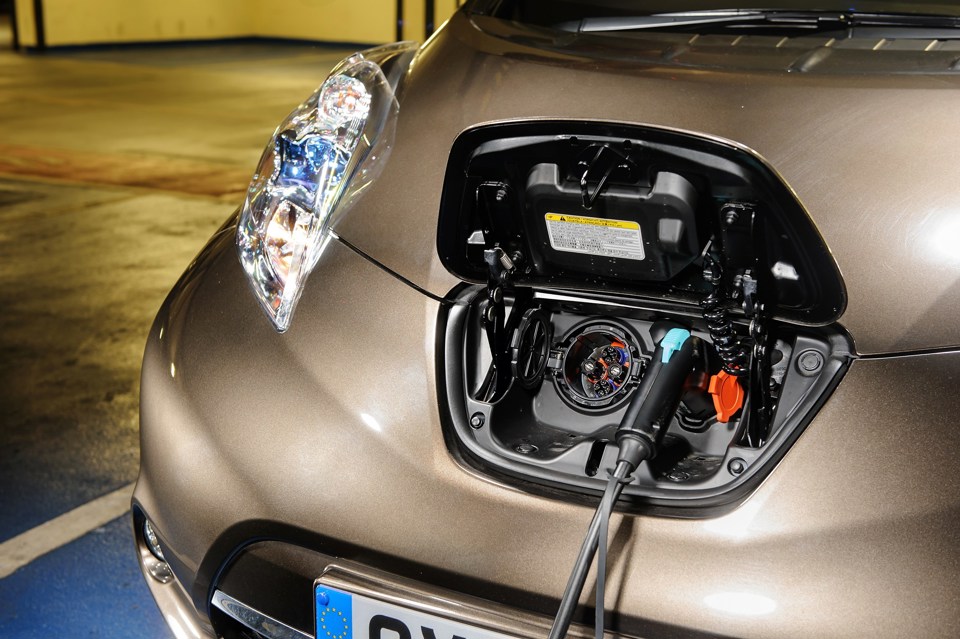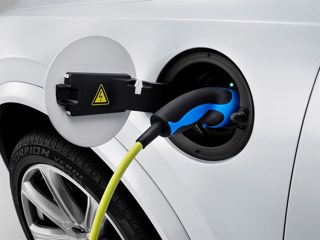The decision to scrap the plug-in car grant (PiCG) has been labelled “premature” and “disappointing” by the fleet and leasing industry.
The transport minister, Trudy Harrison, said that Government funding must always be invested where it has the highest impact.
“Having successfully kickstarted the electric car market, we now want to use plug-in grants to match that success across other vehicle types, from taxis to delivery vans and everything in between, to help make the switch to zero emission travel cheaper and easier,” she explained.
However, following the announcement to withdraw the £1,500 grant for electric cars, there has been widespread criticism from the fleet and leasing industry.
Paul Hollick, chair at the Association of Fleet Professionals, said: “This is, to our mind, a premature move by the Government.
“The various tax incentives and grants that have been made available to speed EV adoption are playing an important part in businesses and their drivers choosing electric cars.
“At a time when both vehicle prices and costs are rising, the removal of the grant makes the process of electrification notably more expensive at the sub-£32,000 end of the market where it applied.”
He continued: “Our worry is that there is a general belief among government decision makers that the EV company car market now has sufficient momentum and can be left to its own devices.
“We are concerned that similar moves may be made around benefit-in-kind taxation from the middle of the decade, which is an area where we feel there very much needs to be a ‘soft landing’ over time.”
Hollick says that what the Government should understand is the impetus behind EV use by businesses is partially driven by environmental concerns but also by financial advantages.
“If the sums for operating EVs don’t stack up, adoption could very well slow down,” he added.
Ashley Barnett, head of consultancy at Lex Autolease, said: “We welcome today’s announcement from the Government that will see it focus on improving the public charging infrastructure across the UK along with recognition of the work that still needs to be done to boost levels of electric vans, trucks and other vehicles, which still require further support to build the momentum we have seen in the transition to electric cars.
“Although it is unsurprising that the funding has been redirected from the plug-in car grant, removing the grant completely may impact EV affordability for these lower priced at a time when supply is constrained and market pricing pressures.
"However, it is reassuring that all existing applications for the grant will continue to be honoured and where a car has been sold in the two working days before the announcement, which hasn’t been considered previously.”
Mike Coulton, EV Consultant at Volkswagen Financial Services UK, called the decision “hugely disappointing’. “Maintaining or even increasing the PICG for the least expensive EVs to make them more affordable and encourage manufacturers to produce electric cars at a lower price-point, could have been a strong incentive to help adoption for this sector of the market," he said.
“This in turn would help to remove older and dirtier ICE (internal combustion engine) vehicles in the same way that scrappage schemes have successfully done in the past.
“That said, the Government’s focus on further improving public charging, whilst still incentivising adoption in other areas of the vehicle market such as LCVs is to be welcomed and encouraged.”
Coulton is also calling for further clarity on benefit-in-kind (BIK) tax rates beyond 2025, and a realignment of the AER rates to reflect the costs of charging an EV away from home, for those who cannot make use of a cheaper overnight electricity tariff.
Henry Duff, head of net zero at British Gas, said: “While the Government has always maintained the grant was temporary, removing it overnight poses an affordability challenge for those drivers considering the switch to electric. It could put the brakes on the momentum gathered in recent months.
“However, we do welcome the shift in targeted support towards infrastructure, as this will help ensure motorists aren’t left behind on the journey to electrification.
“We are recommending that local authorities accelerate the rollout of kerbside EV charge points in order to provide motorists, who can’t access off-street charging, with the confidence to make the switch to electric.
“When it comes to public charge points, they must be reliable, easy to find, easy to use, and easy to pay for.”
Reacting the scrapping of the grant, Karl Howkins, managing director of Sogo mobility, says that the Government has “severely misjudged” the situation.
“As fleet and personal adoption of EVs start to make a meaningful impact on the UK car park, a key incentive is removed,” he said.
“The road to net-zero emissions still has significant hurdles for both cars and van fleet. Now is the time for additional measures to be put in place to accelerate change rather than applying the brakes.”
Jon Lawes, managing director of Novuna Vehicle Solutions, says the plug-in car grant had played a significant role in boosting EV take-up, with registrations increasing by 70% last year.
“The withdrawal signifies there is a real need to shift the focus from uptake, to addressing barriers of EV ownership, by continuing to develop the UK’s charging infrastructure," he said.
"The number of required charge points already lags well behind the number of EVs on UK roads and based on the current rate of adoption this gap is only set to widen further.
"Coupled with the removal of the grant, there is still a risk that UK drivers and businesses don’t have confidence in our infrastructure and it’s therefore vital that this latest Government pledge quickly translates into tangible, meaningful development of the charging infrastructure up and down the country.”
Sue Robinson, chief executive of the National Franchised Dealers Association (NFDA), which represents franchised car and commercial vehicle dealers in the UK, labelled the Government decision “exceedingly disappointing” as it will disincentivise EV adoption across the UK and has the potential to derail the positive progress the automotive sector has made towards decarbonising transport.
“This move sends the wrong message to consumers and will ultimately harm less affluent families seeking a transition to a cleaner method of transport,” she said.
Claire Miller, director of technology and innovation at Octopus Electric Vehicles, added: “It would be difficult to underplay the significance of the plug-in car grant.
“When the scheme started, you could fit the annual registration of electric cars in your local car park - today we’re seeing hundreds of thousands sold in just the first half of the year. Drivers are waking up to the benefits of making the switch to an EV and we’re seeing demand soar.
“It’s now over to the manufactures to meet demand with supply.
“Supply chain issues have led to long wait times for the latest EVs on the market. Manufacturers must do everything they can to strengthen supply at every stage to meet current and predicted demand.
“Without it, we’ll have more customer frustration and slower growth of the second-hand market through these crucial early years of the electric decade.”
James Court, CEO of the Electric Vehicle Association (EVA) was also disappointed by the removal of the grant.
“The end of the plug-in grant was signalled last year, but we hoped for a Treasury reprieve during a cost-of-living crisis, with EVs offering consumers a way of insulating themselves against sky high petrol and diesel costs,” he said.
“However, the grant is not the only policy option, and we hope to see government implement policies that support the uptake of EVs, such as a strong Zero Emission Vehicle (ZEV) Mandate, reducing VAT on non-domestic charging and strengthening the charging infrastructure.”
> Interested in comparing electric vehicle data? Check out our EV tool.
> Interested in ensuring the efficient use of EVs. Check out our dedicated editorial sections: Insight & policy | EV news | Charging & infrastructure | Costs & incentives | Benefit-in-kind | EV case studies | EV road tests
























Login to comment
Comments
No comments have been made yet.